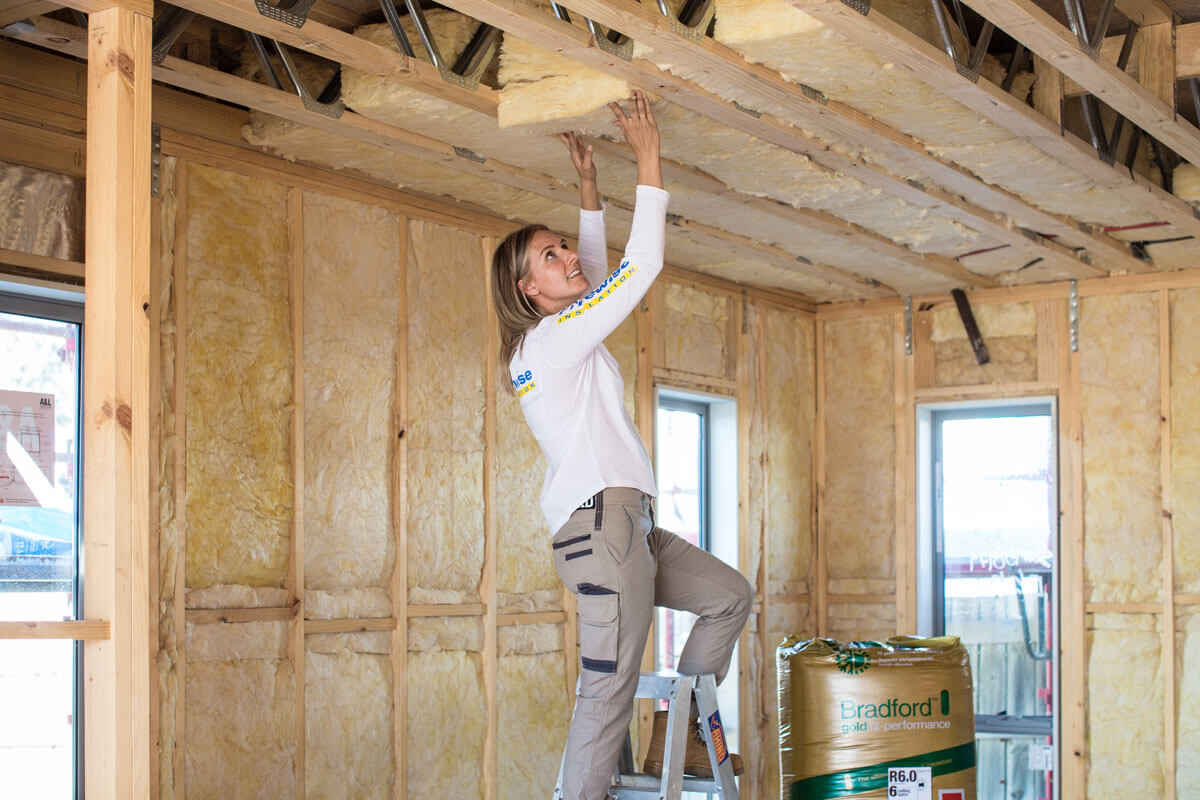
When it comes to maintaining a comfortable and energy-efficient home, insulation plays a crucial role. However, there is much more to insulation than just keeping the cold air out during winter and the hot air out during summer. In fact, there are a multitude of fascinating facts about insulation that many people are unaware of.
In this article, we will delve into 18 insulation facts that will surprise and enlighten you. From the different types of insulation materials to their unique properties and benefits, you will gain a deeper understanding of how insulation works and why it is essential for any home or building.
So, whether you’re a homeowner looking to improve your insulation or simply curious about the science behind it, join us as we explore these intriguing insulation facts.
Key Takeaways:
- Proper insulation saves energy, reduces noise, and improves air quality, making homes more comfortable and eco-friendly while lowering utility bills.
- Different insulation materials offer unique benefits, and proper installation is crucial for maximizing effectiveness and energy efficiency in homes.
Proper insulation can significantly reduce energy consumption.
Insulating your home effectively can lead to substantial energy savings by reducing heat transfer, minimizing the need for heating and cooling appliances, and ultimately lowering your utility bills.
Insulation helps maintain a comfortable indoor temperature.
With proper insulation, your home can maintain a consistent temperature, keeping it cooler in summer and warmer in winter. This improves overall comfort and reduces the need for excessive use of heating or cooling systems.
Insulation helps reduce noise pollution.
Insulation acts as a sound barrier, absorbing and reducing external noise, creating a quieter and more peaceful living environment.
Insulation can improve indoor air quality.
Insulation helps prevent the infiltration of dust, allergens, and pollutants from outside, ensuring cleaner and healthier indoor air for you and your family.
Proper insulation can extend the lifespan of your HVAC system.
By reducing the workload on your heating, ventilation, and air conditioning (HVAC) system, insulation can help prolong its lifespan, leading to fewer repairs and lower maintenance costs.
Insulation can prevent condensation and moisture buildup.
An adequately insulated home helps regulate moisture levels, minimizing the risk of mold, mildew, and rot, which can cause structural damage and health issues.
Insulation can increase the resale value of your home.
A well-insulated home is an attractive feature for potential buyers, as it offers energy efficiency, improved comfort, and reduced utility costs. This can potentially increase the value of your property.
Insulation reduces carbon footprint and environmental impact.
By reducing energy consumption, insulation plays a vital role in reducing greenhouse gas emissions and promoting sustainability.
Different insulation materials offer various benefits.
There is a wide range of insulation materials available, including fiberglass, cellulose, spray foam, and mineral wool, each with unique properties and advantages suited for different applications and budgets.
Proper installation is crucial for insulation effectiveness.
Ensuring proper installation of insulation is essential for achieving optimal performance. Improperly installed insulation can lead to gaps and thermal bridging, diminishing its effectiveness.
Insulation can be installed in various areas of your home.
From the attic to the basement, walls to floors, insulation can be installed in different areas of your home to maximize its energy efficiency and comfort.
Insulation is not just for cold climates.
While insulation is often associated with keeping warmth in during cold winters, it is equally important in warmer climates to keep the cool air indoors and reduce the workload on air conditioning systems.
Insulation can improve fire safety.
Some insulation materials, such as mineral wool, are non-combustible and can provide added fire resistance, helping to slow down the spread of flames in case of a fire.
Insulation can be retrofitted in existing homes.
Even if your home is already built, insulation can still be added to enhance energy efficiency and comfort. Retrofitting insulation can be done through various methods, such as loose-fill insulation or blown-in insulation.
Insulation plays a crucial role in sustainable building practices.
With the growing emphasis on green building and sustainable practices, insulation is a fundamental component in achieving energy-efficient and eco-friendly structures.
Proper insulation reduces the risk of ice dams on roofs.
Insulating your attic helps maintain a uniform temperature on your roof, preventing the formation of ice dams, which can cause water leaks and damage to your home’s structure.
Insulation can provide additional structural support.
Some insulation materials, such as spray foam, have adhesive properties that can strengthen and reinforce the structural integrity of a building.
Insulation helps create a more sustainable and energy-efficient future.
By prioritizing insulation in our homes, we contribute to reducing energy consumption, minimizing environmental impact, and working towards a more sustainable and energy-efficient future for generations to come.
Conclusion
Insulation is a crucial component of any building, providing numerous benefits such as energy efficiency, noise reduction, and improved comfort. With the 18 insulation facts discussed in this article, you now have a comprehensive understanding of its importance and how it works.
Insulation not only helps in reducing energy consumption and lowering utility bills but also plays a significant role in protecting the environment by reducing greenhouse gas emissions. By keeping your home cooler in the summer and warmer in the winter, insulation helps maintain a comfortable living space throughout the year.
Remember to choose the right type of insulation for your specific needs, whether it’s fiberglass, foam, cellulose, or another material. Also, don’t forget to ensure proper installation for maximum effectiveness. With proper insulation, you can enjoy a more energy-efficient and comfortable home or office space.
FAQs
1. What is insulation?
Insulation refers to materials or products that are used to reduce heat transfer between different areas, typically the inside and outside of a building. It helps in maintaining a desired temperature inside the living or working space.
2. Why is insulation important?
Insulation is important as it improves energy efficiency, reduces energy consumption, lowers utility bills, provides noise reduction, enhances comfort, and reduces environmental impact by lowering greenhouse gas emissions.
3. What are some common types of insulation?
Common types of insulation include fiberglass, foam, cellulose, and mineral wool.
4. How does insulation work?
Insulation works by trapping air pockets within its structure, which slows down the transfer of heat. This helps to keep the interior of a building cool in the summer and warm in the winter.
5. How do I know if my home needs more insulation?
If you notice high energy bills, uneven temperatures in different rooms, or drafts, it may be an indicator that your home requires additional insulation.
6. Can I install insulation myself?
While some insulation projects can be DIY-friendly, it is recommended to consult a professional for proper installation. They have the expertise and knowledge to ensure insulation is properly installed for optimal performance.
7. Can insulation help with soundproofing?
Yes, insulation can help reduce noise transfer between different areas of a building, providing a quieter and more peaceful living or working environment.
8. How long does insulation last?
The lifespan of insulation depends on the type of material used. However, on average, insulation can last for several decades if properly maintained.
9. Can insulation prevent condensation and moisture issues?
Insulation can play a role in preventing condensation and moisture issues by creating a thermal barrier and reducing the likelihood of moisture entering the building envelope.
10. Is insulation only necessary for colder climates?
No, insulation is necessary for both colder and warmer climates. It helps in maintaining a consistent and comfortable temperature inside the building regardless of external weather conditions.
Proper insulation offers numerous benefits, from energy savings and comfort to noise reduction and improved air quality. Insulation materials come in various forms, each with unique advantages. Whether you're building a new home or retrofitting an existing one, investing in insulation is a wise decision. Curious about other insulation-related topics? Explore our articles on insulated food bags for picnics or work lunches, ice fishing shelters that keep you warm on frozen lakes and insulated jackets perfect for chilly weather.
Was this page helpful?
Our commitment to delivering trustworthy and engaging content is at the heart of what we do. Each fact on our site is contributed by real users like you, bringing a wealth of diverse insights and information. To ensure the highest standards of accuracy and reliability, our dedicated editors meticulously review each submission. This process guarantees that the facts we share are not only fascinating but also credible. Trust in our commitment to quality and authenticity as you explore and learn with us.


